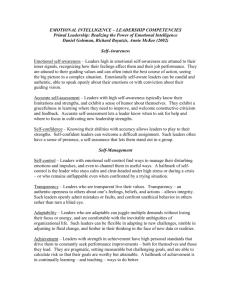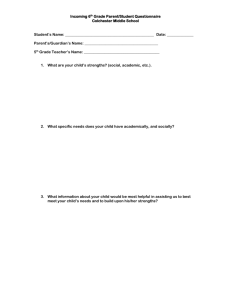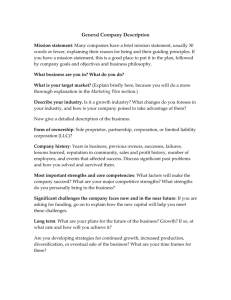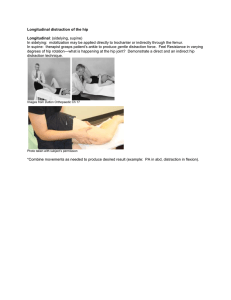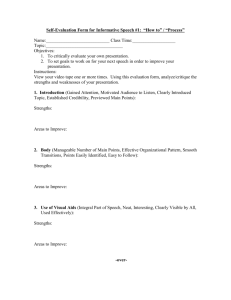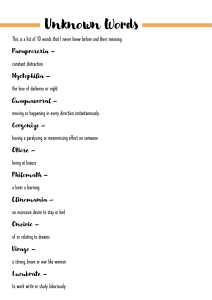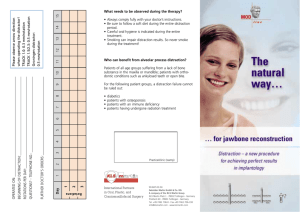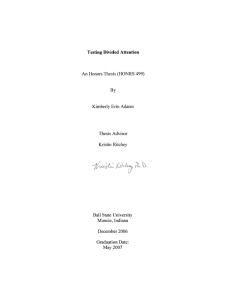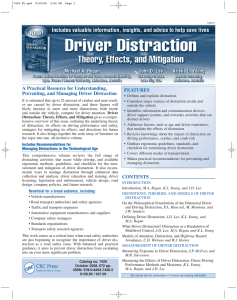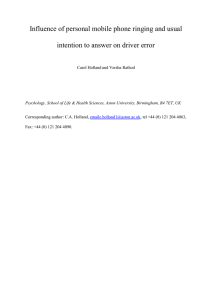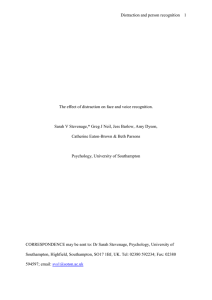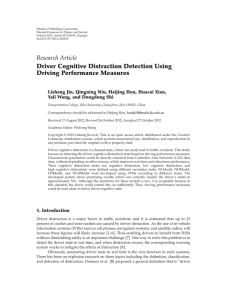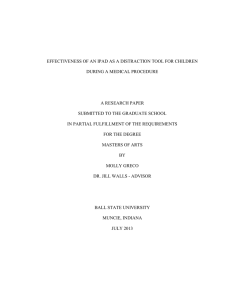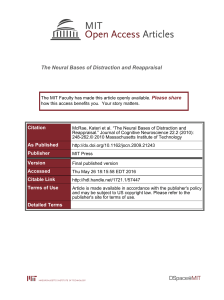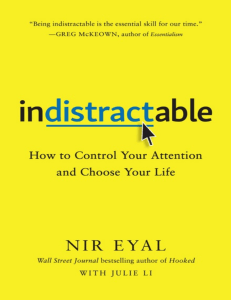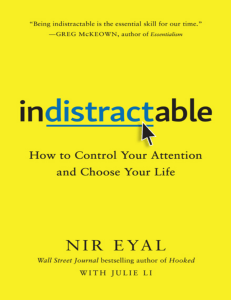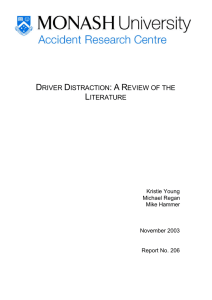How Do You Manage Your Time
advertisement
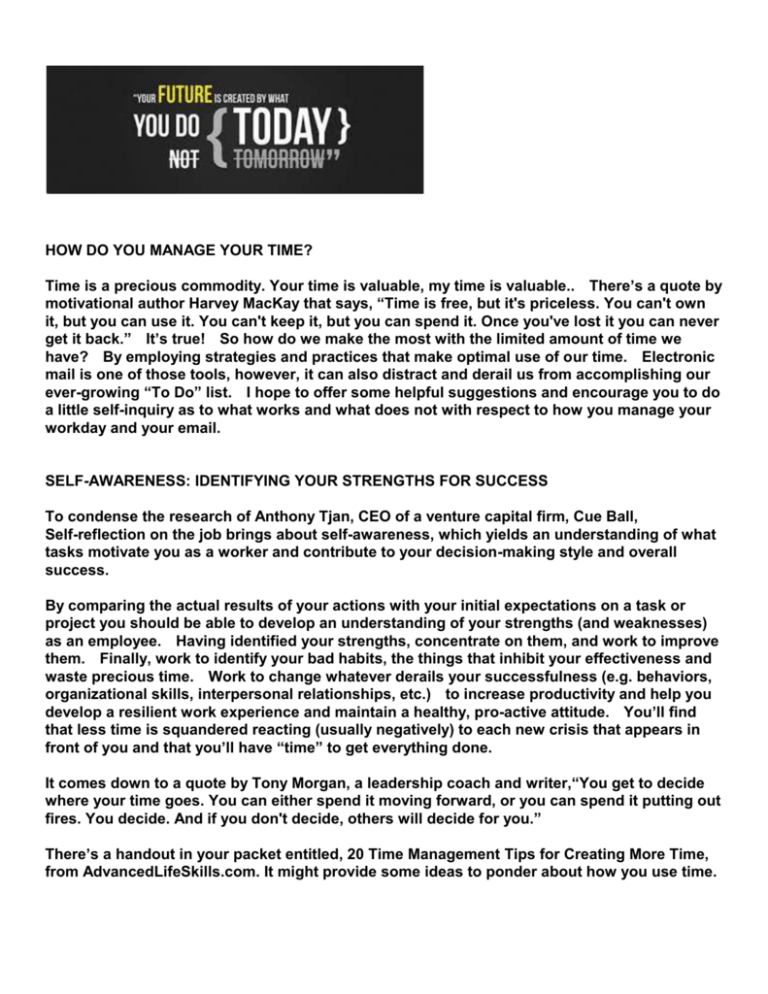
HOW DO YOU MANAGE YOUR TIME? Time is a precious commodity. Your time is valuable, my time is valuable.. There’s a quote by motivational author Harvey MacKay that says, “Time is free, but it's priceless. You can't own it, but you can use it. You can't keep it, but you can spend it. Once you've lost it you can never get it back.” It’s true! So how do we make the most with the limited amount of time we have? By employing strategies and practices that make optimal use of our time. Electronic mail is one of those tools, however, it can also distract and derail us from accomplishing our ever-growing “To Do” list. I hope to offer some helpful suggestions and encourage you to do a little self-inquiry as to what works and what does not with respect to how you manage your workday and your email. SELF-AWARENESS: IDENTIFYING YOUR STRENGTHS FOR SUCCESS To condense the research of Anthony Tjan, CEO of a venture capital firm, Cue Ball, Self-reflection on the job brings about self-awareness, which yields an understanding of what tasks motivate you as a worker and contribute to your decision-making style and overall success. By comparing the actual results of your actions with your initial expectations on a task or project you should be able to develop an understanding of your strengths (and weaknesses) as an employee. Having identified your strengths, concentrate on them, and work to improve them. Finally, work to identify your bad habits, the things that inhibit your effectiveness and waste precious time. Work to change whatever derails your successfulness (e.g. behaviors, organizational skills, interpersonal relationships, etc.) to increase productivity and help you develop a resilient work experience and maintain a healthy, pro-active attitude. You’ll find that less time is squandered reacting (usually negatively) to each new crisis that appears in front of you and that you’ll have “time” to get everything done. It comes down to a quote by Tony Morgan, a leadership coach and writer,“You get to decide where your time goes. You can either spend it moving forward, or you can spend it putting out fires. You decide. And if you don't decide, others will decide for you.” There’s a handout in your packet entitled, 20 Time Management Tips for Creating More Time, from AdvancedLifeSkills.com. It might provide some ideas to ponder about how you use time. EMAIL: COMMUNICATION TOOL OR DISTRACTION Like most other things, there are pros and cons to email. While it can be an efficient way to communicate, it can also be the poster child for distraction and time-consumption, similar to social media and video games. First, I hope you’ll take the time to review the official Campus Legal Guidelines For Email Service and Usage, included in your packet. It’s important to stay informed. Having read quite a bit for this presentation on “best practices,” including watching a tutorial put out by Outlook at least twice. I’m still very torn about what constitutes a best practice, as one size doesn’t fit all. So, in that spirit, I’d like to share some thoughts, suggestions, and strategies, that hopefully resonate with you and how you currently process your email. While Outlook’s tack on email management is feature-driven, creating numerous categories, calendar items, tasks, and then funneling your inbox items into an elaborate folder structure seems very organized, I can’t help but wonder how much time is actually saved with all that ‘clicking.’ By taking time to move email items out of the inbox somewhere else gives the false impression that the items have been dealt with and now time can be allocated to other tasks. Unfortunately, each folder now requires additional focus time to prioritize and handle messages individually. For most of us it’s the sheer volume of messages we receive each day as part of the campus community, coupled with what Dave Baggett, CEO of Inky terms “bacn” (not spam). In his on-line article, “Weapons of Mass Distraction: Why Email is making you Poorer, Dumber and Less Productive” the author sites that the heart of the volume problem is “all the email you wittingly and unwittingly have elected to receive, but usually don’t want or need to read....LinkedIn evites, Facebook notifications, Bed, Bath & Beyond coupons, marketing blah”--just to name a few. As Baggett puts it, these items “grow and regrow like weeds between the flowers” no matter how many times you unsubscribe. Now that we’ve explored our use of time, considered taking a deeper look inside ourselves to see what part our unique personality plays in managing time, and examined briefly the role e-mail plays in our work-day, let’s delve just a little deeper to see how we can be more efficient with both to create a more harmonious work environment for ourselves.
